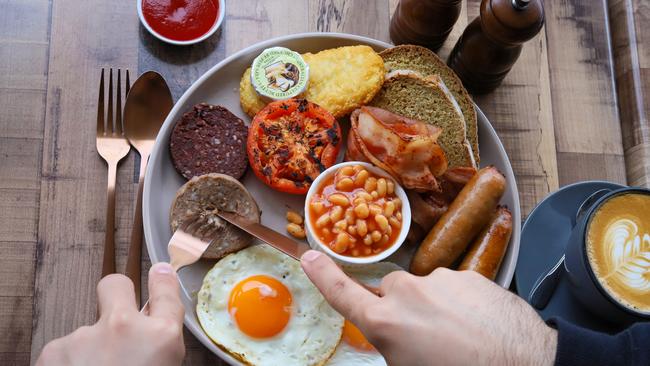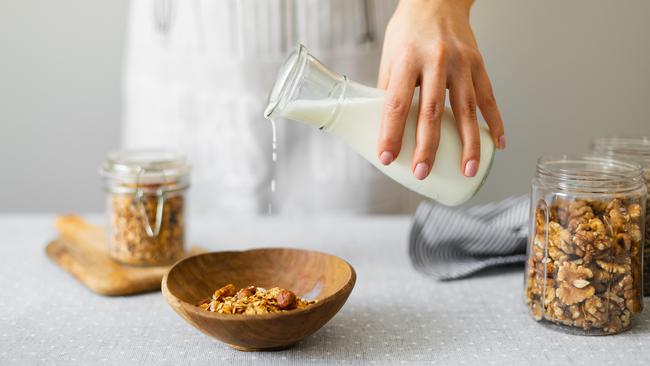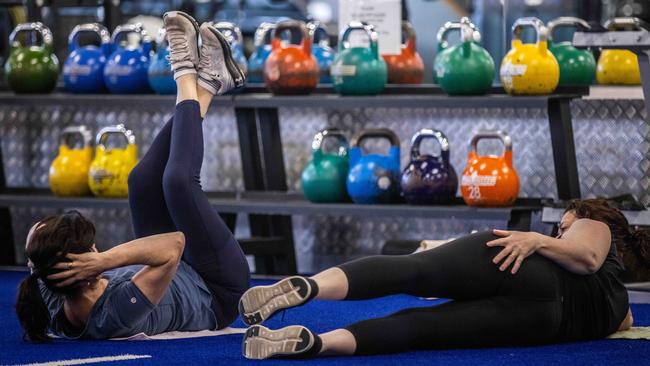Breakfast: should you skip it or eat it? Here’s what the experts do
Some say dine like a king at 7am but others fast until lunch. Once considered the most important meal of the day, breakfast has plummeted out of favour during the intermittent fasting era.

I haven’t eaten breakfast of the conventional, early morning variety since my twenties. Long before it became fashionable to skip meals and push back breakfast into a time restricted “eating window” to lose weight, I decided that I didn’t need food when I got up and would rather take a black coffee and go for a run, a habit that has stood the test of time.
An early breakfast makes me hungrier and more lethargic and I tend to consume more by lunchtime. Instead, I eat my first meal when my appetite spikes, usually about 10.30am but sometimes as late as noon, so far with no discernible adverse effect on my health.
Once considered the most important meal of the day, breakfast plummeted out of favour during the intermittent fasting era of the past decade when it proved the easiest meal to avoid if you want to eat less.
Sales of breakfast cereals are down 3.3 per cent year-on-year according to the market analyst Kantar ahdb.org.uk and despite the NHS urging us to stick to a regular healthy breakfast, the UK Breakfast Eating Habits Market Report by Mintel reported that more than half (51 per cent) of adults who eat breakfast grabbed something on the go outside the home last year, with breakfast merging into brunch as a meal consumed any time before midday.
Dr Kate Bermingham, a senior scientist at Zoe, the personalised nutrition company, and postdoctoral researcher at King’s College London, says that “around 22 per cent of the 43,000 people in the Zoe Health Study cohort reported skipping breakfast”.

None of this seemed to matter much, certainly as far as the waistline was concerned, with various studies in recent years, including a 2021 review in the journal Nutrients, suggesting that when you eat your first meal of the day is irrelevant.
“In terms of the body’s ability to metabolise energy, there is not much difference when you eat your first meal,” says Alexandra Johnstone, professor of nutrition at the Rowett Institute at the University of Aberdeen. “In reality, there is no rule that says an early breakfast is best for everyone and some people find a big breakfast helps them to control their weight and stay healthy, while others do not.”
Recently, though, the tide has beenturning against the breakfast skipper. Last month the authors of one paper published in the International Journal of Epidemiology warned that people who routinely eat their first meal after 9am may be as much as 59 per cent more likely to develop type 2 diabetes than those who consume it before 8am.
Another group from the Mount Sinai School of Medicine in New York recently suggested that cutting out meals has a potentially negative effect on the body’s ability to fight infection, with their study on mice suggesting that missing breakfast specifically triggers brain responses that negatively affect immune cells.
In another study of 30,000 people, a team at Ohio State University declared that those who avoid breakfast tend to eat less healthily overall, missing out on important nutrients including vitamin C and D and the B vitamins and overindulging on sugar and carbs over the rest of the day. Of their findings, the Ohio team said that the 15 per cent of participants who admitted to regularly skipping breakfast were “significantly more likely not to meet the bottom threshold of what we hope to see people eat”.
It’s almost enough to make us all reach for the Weetabix and toast, although, warns Bermingham, “Individual responses to breakfast vary hugely. Knowing what works for us personally is important.”
So whether you are committed to eating it or avoiding it altogether, here’s what the experts want you to know about breakfast:

Are some of us programmed to prefer breakfast?
Our individual preference for breakfast is influenced more by lifestyle habits than genetics. “It is mostly due to conditioning, not biology,” Bermingham says.
Whenever we choose to eat, we should try to make our mealtimes regular. That helps to set our body clocks and to maintain metabolic flexibility, the body’s ability to respond and adapt to metabolic demands by sustaining energy levels and controlling blood sugar, which we typically lose as we age.
“Our studies show that hunger in the morning is impacted by many things,” Bermingham says. “Sleep quality, the composition of your dinner the evening before and your general metabolic health can all play a role.”
Is there a best time to eat breakfast?
If there’s a take-home message from all scientific studies on breakfast it’s that routine and content of the meal are key, although no single time suits everyone.
“Waiting to eat our first meal until we actually feel hungry is a great way to experiment and help us understand our own hunger signals,” says Professor Tim Spector, co-founder of Zoe and author of Food for Life and Spoon Fed.
He says that “to give the gut a rest overnight” he tends to eat his breakfast at about 11am on most days. “This works for me 80 per cent of the time, but I often skip breakfast completely if I’m busy,” he says. Bermingham, however, says that she eats her breakfast by 8.30am. “I have overnight oats ready in my fridge and typically have them in the morning before I exercise.”

Should we really breakfast like kings?
There’s some truth in the old saying we should breakfast like a king, lunch like a prince and dine like a pauper. Last year Johnstone and her colleagues showed in a study that front-loading calories to eat proportionately more in the morning might help us to feel less hungry throughout the day compared with eating later, but that it won’t necessarily affect weight.
“It’s not just how much but what you eat that can also make you less likely to cave into food cravings later on,” Johnstone says. “Higher protein breakfasts such as yoghurt, scrambled eggs or a smoothie with added quark or tofu can leave you feeling fuller for longer.”
What constitutes a healthy breakfast?
While porridge and eggs are better than refined carbs, Spector says that breakfast is in need of a radical rethink.
“That means plenty of plant diversity including foods like mushrooms, beans and pulses, seasonal fruits and vegetables like berries, apples and pears and taking the opportunity to have some fermented foods such as kefir, yoghurt and sauerkraut which are good for gut health.”
His breakfast of choice is chopped seasonal fruit with kefir, whole yoghurt, seeds and nuts. “I occasionally have eggs with a white bean shakshuka and fresh cheese,” Spector says.
Breakfast: is it better to eat before or after exercise?
If you’re trying to gain lean muscle mass, cutting breakfast is futile - you need to prioritise protein and consume enough regular calories to support strength gains, says Javier Gonzalez, professor of nutrition and metabolism at the University of Bath. However, for anyone whose goal is a long-term health boost through exercise, then a few “fasted’‘ morning workouts before breakfast is a good thing, he says. Gonzalez eats porridge after his morning exercise. “These effects seem to be mainly driven by delaying the carbohydrate and energy content of breakfast, so having a black coffee before exercise is fine in this context.”
To improve exercise performance, however, eating a healthy carb-based breakfast an hour or two before a run or cycle is important, he says. “When we studied male cyclists we found that eating a mixture of different carbs at breakfast improved their performance and we are now hoping to see if the effects are the same for women.”
THE TIMES

To join the conversation, please log in. Don't have an account? Register
Join the conversation, you are commenting as Logout